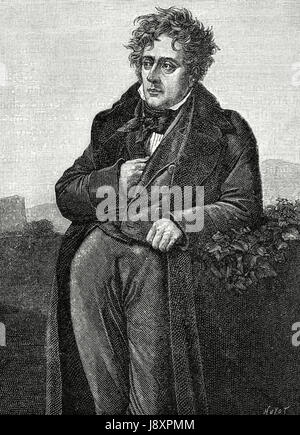
Abridgements of the work, which boil it down to “essentials”, do readers a disservice by eliminating Chateaubriand’s digressions, which are precisely what give the work its zest. Although the Memoirs are often looked upon as a historical document, they are more than that: they’re a masterwork of literary style as the expression of sensibility - an exploration, in the tradition of Montaigne’s Essays, of the moods and memories of an individual mind.

Withough question this archetype played a large part in determining the course of French literature up to the 1850's.In Memoirs from Beyond the Grave, the more than two-thousand-page autobiography he composed between 18, Chateaubriand allowed himself to drop his great man’s mask at length. Solitary, mysterious, ardent, and poetic, he is in open revolt against a society whose values he rejects. Perhaps even more than Werther or Childe Harold, René embodies the romantic hero, and is not wholly foreign to the disorientation of youth today. Atala is the passionate and tragic love story of a young Indian couple wandering in the wilderness, enthralled by the beauties of nature, drawn to a revivified Christianity by its esthetic charm and consoling beneficence, and finally succumbing to the cruelty of fate. A quixotic and paradoxical personality, he combined impressive careers as a brilliant prose-poet, a spiritual guide, a high-ranking diplomat, and an enterprising lover.Ītala and René are his two best-known works, reflecting not only his own joys, aspirations, and despair, but the emerging tastes of a new literary era. Drawing on eighteenth-century English romanticists, on explorers in America, and on Goethe's Werther, he had a profound effect on French writers from Victor Hugo and Lamartine to George Sand and Flaubert. Chateaubriand was the giant of French literature in the early nineteenth century.


 0 kommentar(er)
0 kommentar(er)
